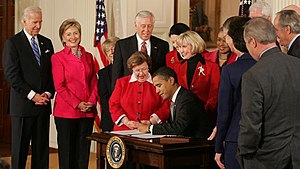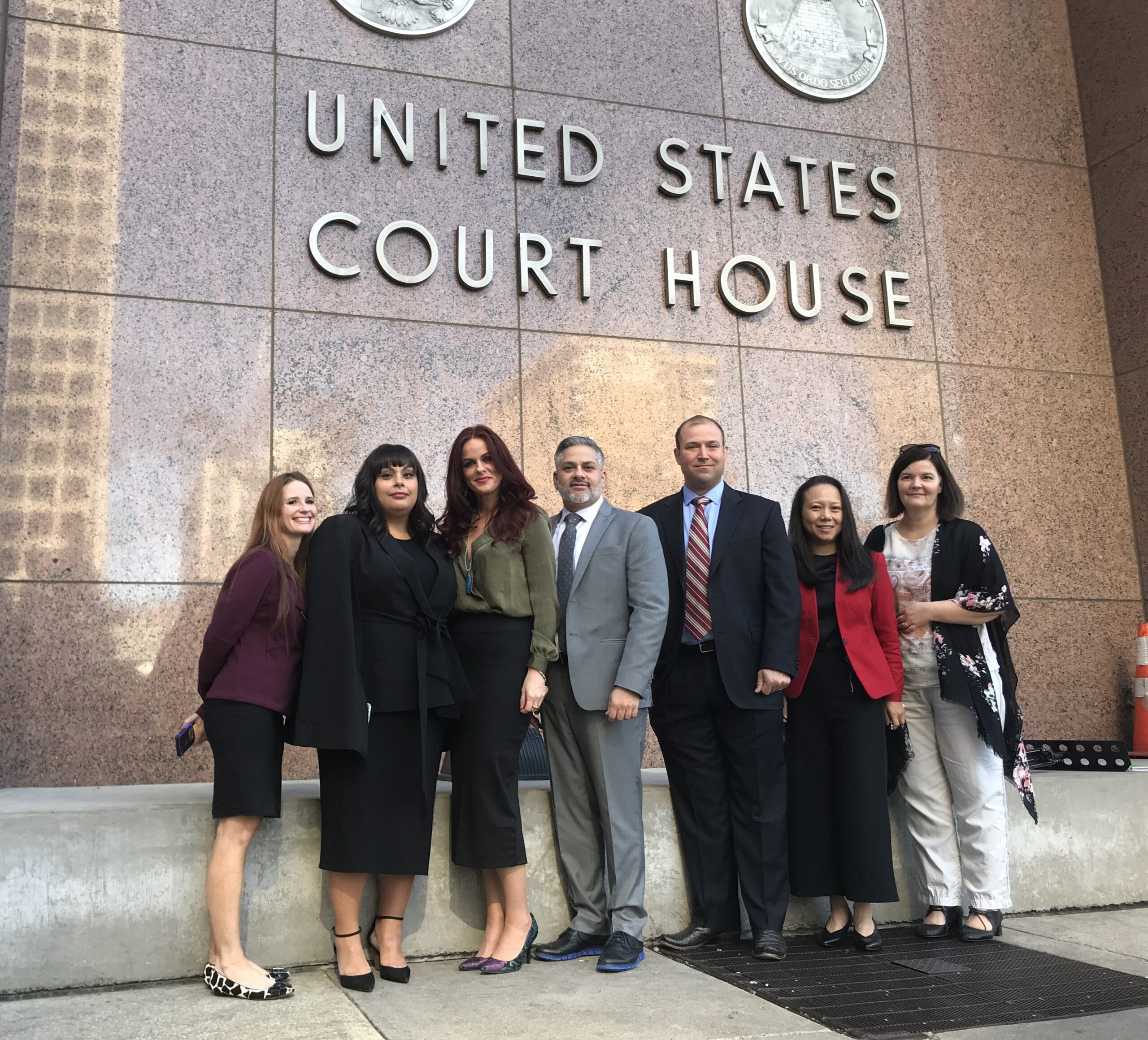 {Read in 6 minutes} Recently I posted an article reminding employees that they must file a harassment complaint within 180-300 days after the latest occurrence. While working on that blog, the question came up about what an employee should do if they are the victim of harassment.
{Read in 6 minutes} Recently I posted an article reminding employees that they must file a harassment complaint within 180-300 days after the latest occurrence. While working on that blog, the question came up about what an employee should do if they are the victim of harassment.
Report the Behavior
First and foremost, report the questionable behavior to someone in your Human Resources (HR) department. The company is not expected to have eyes and ears everywhere; internally, most of them require their employees to report incidents, and the law also requires employees to report incidents themselves.Continue reading
Workplace Discrimination? Get that Complaint Filed!
Employees in this country have protections against workplace discrimination and harassment. These include protection from sexual or racial harassment, national origin, religion, age, disability, and gender (including sexual orientation) discrimination. These forms of harassment and discrimination are spelled out under Title VII, and its amendments, which is the statute enacted as a result of the Civil Rights Act of 1964.

Prior to that time, there had been other federal statutes such as §1981 and §1983 which address primarily race and national origin discrimination as well as retaliation. These sections, however, did not include gender, religion, disability, or age discrimination. As a result of the civil rights movement, the Civil Rights Act was passed, which was designed to specifically address workplace discrimination and expanded protections for employees subjected to these additional types of discrimination.
The Title VII statute empowered what is known as the Equal Employment Opportunity Commission (EEOC) and created that faction of the government whose job it is to survey and take complaints of workplace discrimination. Anyone wanting to bring a complaint and go into Federal court under those claims has to first go through the EEOC administrative process. As a federal statute, it is the same in every state and any employer who has 15 employees or more is subject to the statute.
The EEOC Filing Deadline
Title VII sets a complaint filing deadline of 180 calendar days. However, it also provides that in any state where there is a similar employment discrimination statute, such as New York, the deadline may be expanded to 300 days. With the exception of a few states like New Mexico and Georgia, every state in this country has a state-level statute against workplace discrimination. In those states that do not, the filing period is limited to the 180 days.
A complaint must be initiated when the harm takes place. You can’t have something happen two years earlier and then wait, worrying whether you are going to lose your job. That is certainly a legitimate worry, but if you choose to wait and try to raise that complaint after the 180-300 days have passed, it will be considered untimely because the statute requires you to make that complaint within 180-300 days of the occurrence of discrimination.
However, certain claims trigger the 180-300 day filing requirement after the last occurrence of discrimination where the discrimination takes place over a period of time. This type of discrimination is known as a “continuous violation.” For example, if you are a victim of sexual harassment and you were subjected to repeated, unwanted sexual advances or comments over a period of months, the clock starts running from the last act of harassment, not the first. Most employees do not know this.
If you believe you have a legitimate complaint, it is extremely important that you make use of resources like the EEOC’s website, or contact a lawyer like us to ask for information about what to do, even if you choose not to act on it at that time. Failing to act in many states leaves you high and dry, without any other protection, because either there is no state statute, or in more conservative jurisdictions like Texas, for example, the states only adopt the same 180-day rule as Title VII.
Paying attention to the EEOC deadlines is an important issue because an employee may have a very strong legal claim but if they do not act within a certain period of time, or get the information to act within a certain period of time, their claim may be completely barred leaving you with no avenue for justice.
James A. Vagnini
Partner
email: jvagnini@vkvlawyers.com
Supervisor sues Omni hotels, alleging sexual harassment and retaliation when she reported it
North Dakota workplace discrimination trial set for 2019
A racial discrimination lawsuit brought by six workers on a North Dakota job site is set for trial in late 2019. Continue reading
Punitive Damages now more readily available in NYC Human Rights Law cases
A recent legal decision increases the likelihood that successful plaintiffs will be able to recover punitive damages when asserting discrimination claims in New York City.
Continue reading
FDNY sued for discrimination — again
Nearly three years after the city agreed to pay $98 million to settle claims of bias in its hiring of black and Hispanic firefighters, New York’s Bravest is being sued for discrimination again.
Continue reading
Valeant Unit Settles Sex Discrimination Claims For $7.2M
Law360, Los Angeles (July 12, 2016, 4:56 PM EDT) — Valeant-owned Medicis Pharmaceutical Corp. will pay $7.2 million to settle a class action alleging gender discrimination and other claims brought by female sales representatives of the medical cosmetics company, according to a final settlement order signed by a D.C. federal judge Monday. Continue reading
Hanging Monkey, Racial Graffiti, Among Evidence in Harassment Lawsuit
A stuffed monkey hanging from the ceiling in the shipping department at Univar USA’s Dallas distribution chemical facility is part of the evidence two Dallas men are providing in their lawsuit alleging racial harassment by some co-workers.
Continue reading
Gender Pay Gap

Women seemingly always have fought an uphill battle in the fight for wage equality with their male counterparts. As the number of women in the workforce has increased over the years, that gap between male and female wage earners has gotten narrower, but the gulf is still perhaps too wide compared to what it should be. Some correctly argue that any wage gap based solely on gender should not occur, especially in today’s society. Any difference in earnings of this nature falls under the category of discrimination in the workplace and has no legal reason to be allowed.
While President Obama has gained praise for his support of reducing this pay gap and supporting legislation like the Lilly Ledbetter Fair Play Act, a law that makes it easier for women to sue over pay discrimination, he has come under fire recently after a study of his staff in the white house has revealed that he pays his male staffers more than his female staffers. The numbers show that women staffers earn about eighty-seven percent of that of their male counterparts ($71,000 to $62,000), while the national average in 2011, according to the Bureau of Labor and Statistics (BLS), was around eighty percent.
Despite this example of potential discrimination from our nation’s highest office, the president and his predecessors’ support of pay equality has allowed for several advancements that are evident with the latest numbers. Younger women (aged 25-34) have narrowed the gap substantially to about ninety-two percent according to the 2011 numbers. Several legislative acts, such as the Pregnancy Discrimination Act of 1978 and the Family and Medical Leave Act of 1993, have made it more difficult for employers to discriminate against women when it comes to their needing to miss time due to pregnancies. However, women are still more likely than men to take unpaid time off of work to deal with sickness or other parenting issues in a family, a fact which reduces their wages by default.
While it is becoming harder and harder for employers to discriminate against women in their pay, the fact remains that it still happens. When it does, it is important to have the best legal representation possible to ensure that your rights are protected. The Law offices of Valli, Kane, and Vagnini are specially equipped to help any victim of this or any other kind of discrimination in the workplace. Contact them for a free consultation to make sure that your rights are protected.
Will Obama End Employment Discrimination?
President Obama seems to hold the key which unlocked the door to his victory. What is the key to his success you ask? Simply addressing long lasting social issues. Close to two times as many women than men find concerns like same-sex marriage, abortion, and Employment Discrimination as the most important issues that determined their vote, based on recently reported polling information.
When it comes to discrimination in the workplace, Presidents over the years have issued orders to protect workers against it. In 1941 President Roosevelt issued an order that prevented discrimination against any worker because of their race, creed and national origin. The Civil Rights Act of 1964 was released two decades later, which outlaws employment discrimination based on religion, sex and race. Since Obama has been in office, he has addressed issues of employment discrimination and in 2011 he agreed to pass the Employment Non-Discrimination Act. He abolished “Don’t Ask, Don’t Tell” and openly supports the gay community and same sex marriage. That’s great for Obama, but what about the rest of the country? As it stands today, 21 states have outlawed sexual-orientation discrimination, while 16 also forbid gender-identity discrimination, and many cities and counties have similar nondiscrimination laws. But only about half of the population of the United States lives in places with such laws, which leaves millions of workers undefendable against discrimination.
Who is being Discriminated Against?
Nowadays, even though the world has widely accepted individuality and self expression, discrimination against women in the workplace still occurs. It is also distributed amongst lesbians, gays, bisexuals and transgendered people. A recent research study found that in the last five years, 27% of lesbian, gay or bisexual people had been harassed at work or lost a job because of their sexual orientation. In addition to that, half of transgender people had experienced discrimination in hiring, promotion or job retention. Discrimination can also be found in their paychecks. Studies also show that they earn less than heterosexual men with the same qualifications. Pay discrimination can also be found with women who, despite holding the same positions as men, are receiving less pay than men for doing the same job. Even though studies also show that there are more women attending colleges than men, women are still given less of a chance at flourishing financially in comparison to men in the workplace.
What Can Be Done?
There is currently a Democratic bill that has long been sitting in Congress, which Obama supports, called the Paycheck Fairness Act. The Paycheck Fairness Act would require employers to show that any salary differences between men and women doing the same job are not gender-related. The bill also would have prohibited employers from retaliating against employees who share salary information with their co-workers. The bill never passed because it could not gain the support of the Republican party.





